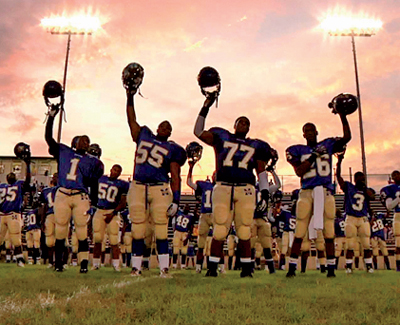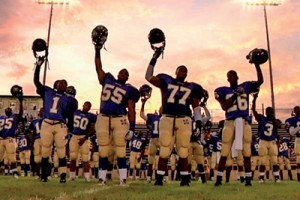 The Los Angeles Dodgers, MLB’s crown jewel of the West Coast, now has a new owner and darker face in the front office. What does that mean for baseball? A new dynasty is about to be formed in LA from a guy who knows winning, and success. Whether that dynasty means that the Dodgers will soon be signing Cole Hamels and Josh Hamilton, or some other combination of superstars, baseball fans should know that the Dodgers will soon be referred to as a consistent threat in October. The Magic Johnson Group was announced as winning the bid for the Dodgers, with a bid of $2 billion for the team. Current owner Frank McCourt and certain affiliates of the purchasers will also be forming a joint venture, which will acquire the Chavez Ravine property for an additional $150 million.
The Los Angeles Dodgers, MLB’s crown jewel of the West Coast, now has a new owner and darker face in the front office. What does that mean for baseball? A new dynasty is about to be formed in LA from a guy who knows winning, and success. Whether that dynasty means that the Dodgers will soon be signing Cole Hamels and Josh Hamilton, or some other combination of superstars, baseball fans should know that the Dodgers will soon be referred to as a consistent threat in October. The Magic Johnson Group was announced as winning the bid for the Dodgers, with a bid of $2 billion for the team. Current owner Frank McCourt and certain affiliates of the purchasers will also be forming a joint venture, which will acquire the Chavez Ravine property for an additional $150 million.
The Magic Johnson Group (with partner Stan Kasten) is largely funded by Guggenheim Partners which reportedly has somewhere in the range of $125 billion in assets. What is good about this group? Magic Johnson is an LA icon that lives and breathes LA Sports. Stan Kasten led the Braves in the 1990′s and is a close friend of Bud Selig. And let’s not forget Magic Johnson is one of the most important and prominent people in LA… Shiong, Cohen, and Kroenke? Yeah, nobody in LA knew who they were a year ago. What scares me? Their financial backing isn’t as strong as the other groups. That’s about it and that isn’t even that bad seeing as the only bad thing about it is that it is coming from investment firms.
From Dodger.com:
A deal has been consummated between the Dodgers and Magic Johnson’s bidding group for the Dodgers and Dodger Stadium for $2 billion, the club announced Tuesday night.
The sale officially is to Guggenheim Baseball Management LLC, which includes Mark R. Walter as its controlling partner, Johnson, Peter Guber, Stan Kasten, Bobby Patton and Todd Boehly. Current owner Frank McCourt and certain affiliates of the purchasers will also be forming a joint venture, which will acquire the Chavez Ravine property for an additional $150 million.
“I am thrilled to be part of the historic Dodger franchise and intend to build on the fantastic foundation laid by Frank McCourt as we drive the Dodgers back to the front page of the sports section in our wonderful community of Los Angeles,” Johnson said.
The Dodgers released a statement at 8:04 p.m. PT last night announcing the sale.
“This transaction underscores the Debtors’ objective to maximize the value of their estate and to emerge from Chapter 11 under a successful Plan of Reorganization, under which all creditors are paid in full,” the club said in the statement.
“This agreement with Guggenheim reflects both the strength and future potential of the Los Angeles Dodgers, and assures that the Dodgers will have new ownership with deep local roots, which bodes well for the Dodgers, its fans and the Los Angeles community,” McCourt said. “We are delighted that this group will continue the important work we have started in the community, fulfilling our commitment to building 50 Dream Fields and helping with the effort to cure cancer.”
How will Magic’s role help our community? Will we start to see more minorities hold positions at the Dodger front offices?
And what does it mean that McCourt is a partner in the land and lots? It means he will still make money, a lot of money, after recently filing for bankruptcy and paying off his soon-to-be ex-wife.
Your thoughts on this new deal and the future outlook this will have in Los Angeles?



























